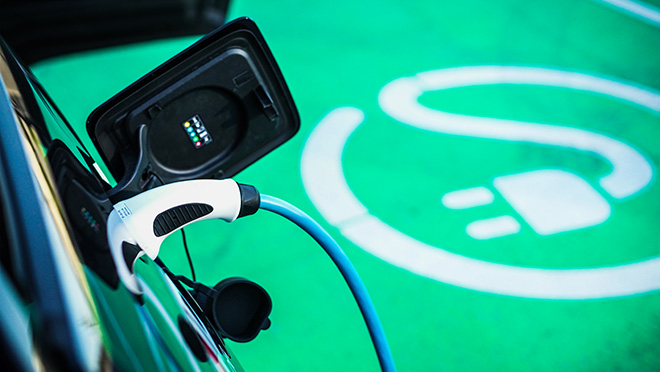10 things you should know about EV Ready and charger rebates

Advice to help you navigate electric vehicle charger projects
As customer demand for home and workplace electric vehicle chargers escalates, Alliance members are finding themselves in a trial-and-error phase around projects related to those rebates. We're here to help minimize the error with a few tips to help things go smoothly.
We'll start with an overview of the available rebates, then move on to some tips in managing projects.
EV ready condo rebates can be done one at a time
Start with the EV Ready Plan, which you need before you're eligible to apply for infrastructure and/or charger rebates.
Here are the rebates:
- Plan rebate: A rebate of up to $3,000 for the creation of an EV Ready plan – a professional strategy for a building to make at least one parking space per residential unit EV Ready.
- Infrastructure rebate: A rebate of up to $600 per parking space to install the electrical infrastructure required to implement an EV Ready plan, to a maximum of $80,000.
- Charger rebate: A rebate of up to $1,400 per charger to purchase and install Level 2 networked EV chargers to implement a building's EV Ready plan, to a maximum of $14,000.
Learn more about EV Ready rebates.
There's also a standalone charger rebate for condos and apartments
A rebate of up to $2,000 per charger is available to purchase and install Level 2 networked EV chargers at a building's residential parking spaces, to a maximum of $14,000.
A maximum $350 rebate is available for single-family homes
Single-family homes can get a rebate of up to 50% of the purchase and installation costs of an eligible Level 2 EV charger, to a maximum of $350. This includes duplexes or townhouses with private garages or dedicated parking.
Workplace rebates up to $2,000 per charger are for employee use only
Workplaces can get a rebate of up to $2,000 per charger to purchase and install eligible Level 2 networked EV chargers for employee use, to a maximum of $14,000. To be considered eligible for this program, workplaces must have a minimum of five employees that work primarily at the facility and have dedicated parking for their employees. A business can apply for a maximum of four of their workplace sites, however, for a maximum project rebate of $56,000. This rebate is not eligible for businesses to offer parking for customer use (such as retail). Pre-approval from BC Hydro is required prior to purchasing and/or installing chargers.
Take care to get all information correct on forms
Customer contact information should not be the contact of the installation company. It needs to be info on the customer.
Make sure permit numbers are included on the contractor installation forms, as this has been a common oversight.
BC Hydro has found that delivery addresses on contractor installation forms often contain incomplete contractor address information, or include confusing delivery address information. Take the time to get it right.
Three things customers need to provide for self-installed chargers
If a customer – or an Alliance member – self-installs a charger in their own home, they need to supply the following:
- Charger Invoice
- Receipts for equipment purchased for installation
- Permit/Inspection confirmation
Note also that Tesla chargers can't be done through a non-electrician direct install, as they don't have the required GA771 plug-head to be a direct install.
Tesla Wall Connector is not an eligible charger, except for in single-family homes
Neither the Tesla Wall Connector (nor the Tesla Mobile Connector) is eligible under MURB (condos and apartments) or the workplace charger rebates. The Tesla Wall Connector, however, is eligible to be installed in single family homes.
Charging unit eligibility always needs to be included
An issue has arisen when a customer receives a free charger then attempts to get a rebate on the installation. Unless details are provided around the eligibility of the charger, the rebate for the installation will not be approved.
Always include the final invoice, not just earlier quotes
Always provide the customer with a final invoice that's unique from any earlier estimates or quotes. Tell customers to include only that final invoice with their application.
MURB and workplace: Hold off on until you get pre-approval
For workplace and MURB rebates, you can't order equipment or start an install until the customer receives the official pre-approval email.
Related stories and links: